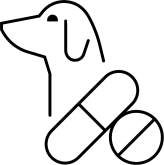
Pharmaceutical
Written Prescriptions
Because we do not have an adequate working relationship established with most Internet/mail-order pharmacies and because of the unknown conditions encountered in transport and storage of medications, the unknown source of products, and the uncertain legal status of some pharmacies, it is our hospital policy not to authorize or approve prescription requests sent to us by fax or telephone from Internet/mail-order pharmacies.
Instead, we will be happy to give you a written prescription that you can have filled at the pharmacy of your choice.
If you choose to utilize the services of an Internet/mail-order pharmacy, we suggest that you check with the California Board of Pharmacy to verify that it has met all of California’s consumer protection requirements, including registration. Some nonresident pharmacies are facing disciplinary action in their home states. (California Board of Pharmacy, 400 R Street, Suite 4070, Sacramento, CA 95814, 916-445-5014, fax 916-327-6308, web address www.pharmacy.ca.gov.)
You may also want to visit the U.S. Food and Drug Administration website (www.FDA.gov) to obtain information on buying prescription medicines online. Click here for the consumer safety guide. Although this article is about human prescription medications, it also applies to veterinary products.
Prescriptions and Nonresident Pharmacies
What are Prescription Drugs?
Prescription drugs are products that have received Food and Drug Administration (FDA) approval and can be purchased only on the order of a licensed veterinarian (or physician, dentist, etc. for human products). Products that are placed in the category of a prescription drug are those that need special instructions for their use and that have the potential to cause harm if given inappropriately. Drugs that can be used safely without special instructions are referred to as over-the-counter (OTC) products.
Who Can Write a Prescription?
Only certain licensed health care professionals can “write” a prescription. Veterinarians are the only health care professionals legally allowed to write prescriptions for animals. And veterinarians must meet certain requirements before they can provide a prescription for their patient. Chief among these is that a veterinarian-client-patient relationship (VCPR) must be established and maintained. To establish and maintain a valid VCPR, the following conditions must be met:
1. The veterinarian has assumed responsibility for making medical judgments regarding the health of the animal(s) and has discussed any treatment needed with the client, including providing instructions on administering drugs or treatment.
2. The veterinarian has examined the animal(s) and is personally acquainted with the care of the animal(s). This examination must have taken place within a medically appropriate time with a maximum of one year.
Traditionally there have been two methods to provide a client with a prescription, telephonic and pen-and-paper (prescription pad). In both of these methods, the process is initiated by the veterinarian/prescriber, with instructions being given to the pharmacist.
Who Can Fill a Prescription?
Only a licensed pharmacist can fill a prescription. The pharmacy (including online or mail-order pharmacies) must also be licensed, if it is located within California. Nonresident pharmacies (including internet/mail-order pharmacies) must be “registered” with the California Board of Pharmacy and licensed in the state where they are located.
(As a side note, when your veterinarian sends medications home, he/she is “dispensing” medications and is not technically filling a prescription. A veterinarian cannot fill a prescription ordered by another veterinarian, unless he/she is also a licensed pharmacist.)
